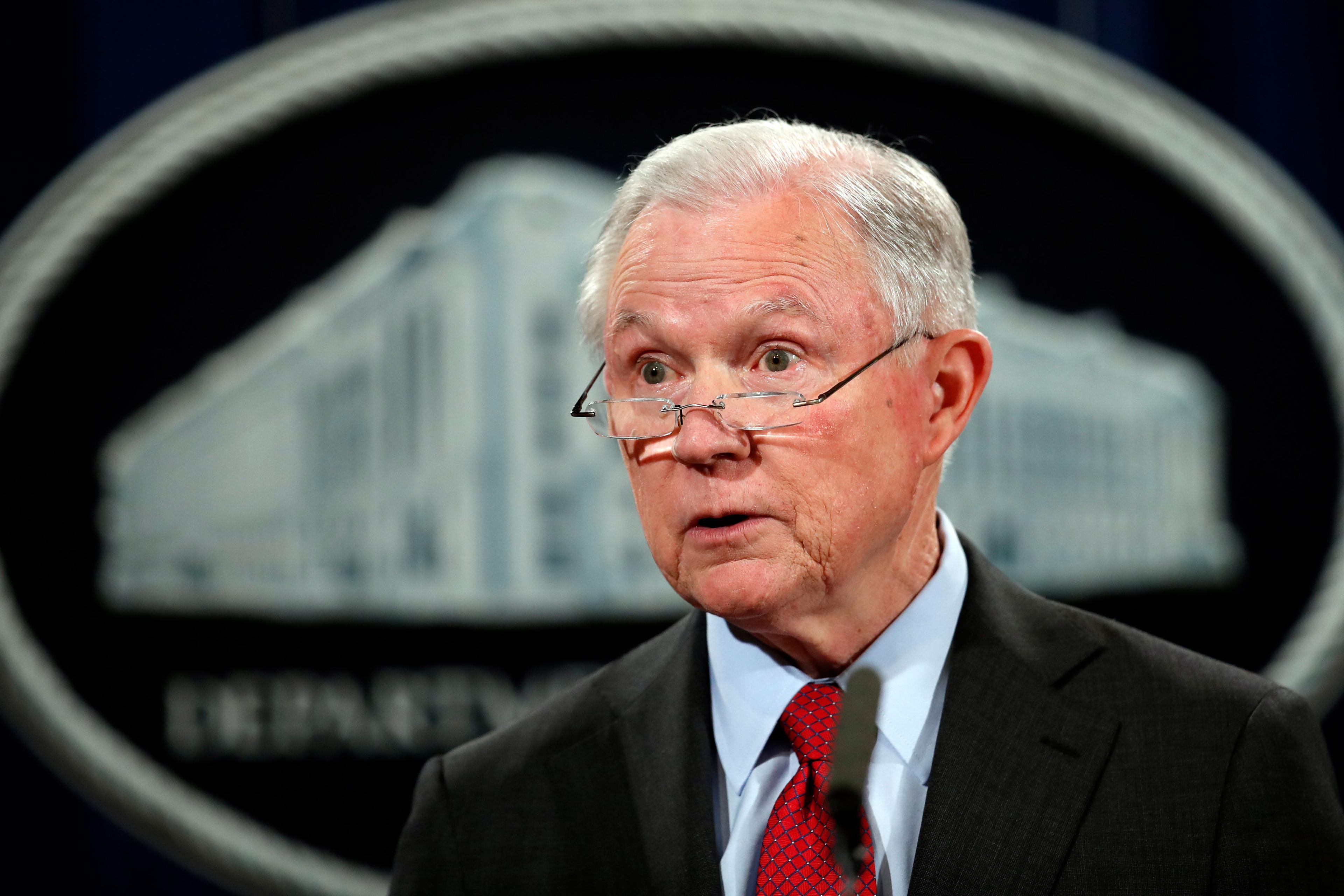

It’s never been easy running a bank that caters to Colorado’s booming cannabis industry. Sundie Seefried, president and CEO of Partner Colorado Credit Union and Safe Harbor Private Banking, likened the last three years to “waiting for the shoe to drop every day.”
“You cannot be weak going into this, you have to have a good stomach, and a lot of fortitude to stay, and get this job done,” she said.
U.S. Attorney General Jeff Sessions is testing the will of the cannabis industry now. He didn’t have to do much to insert a bit of chaos. With a one page memo he removed certain protections for people doing business in legal recreational marijuana.
Some parties responsible for the cash that helps the industry thrive are unnerved. More importantly for those banks and investors: It’s implied that prosecutors could go after assets and collateral tied to the business. It also wasn’t lost on Seefried that they can go after individuals at the bank.
“That was an interesting morning,” Seefried said, remembering the day when news of the memo broke. “I think some banks and credit unions had that as a trigger to exit, we did not.”
She isn’t going to close accounts because she believes the industry needs the support of banks to prevent large amounts of cash from hitting the street. It’s just too dangerous. Banking has long been seen as part of making Colorado’s marijuana regulation work. It also helps that Bob Troyer, Colorado’s U.S. Attorney, said he had no plans to change enforcement.
Still, most don’t share Seefried’s attitude.
Sean McAllister, a Denver marijuana attorney who said he had a multimillion dollar investment deal for a California marijuana business fall through because of the memo, has no doubt that Sessions “intended to, and in fact did, destabilize the cannabis industry.”
McAllister is a true believer in the marijuana movement and an early advocate. “Those of us that are already in this are here to stay,” he said, but new private investors, the “lookie-loos” as he called them, have other places to park their money and don’t need the aggravation and the risk.
The attorney gets fired up about the hypocrisy of the IRS accepting marijuana tax money and auditing marijuana stores. Those same businesses aren't allowed to get a traditional loan from a bank, pushing them to private investment.
“There is billions of dollars of cannabis money washing through the banking system every year,” McAllister said. “And the federal government and the Congress continues to stick its head in the sand and pretend that it’s not a problem and there is no solution.”
There is a solution, he said, like removing marijuana from the Controlled Substances Act. However, that will take an act of Congress.

“The Controlled Substances Act says you may not deal in these substances or the proceeds therefrom,” said Don Childears, the head of the Colorado Bankers Association. “I mean, that’s just about as clear as you can get it.”
Childears estimates about 20 banks are dealing with the cannabis industry in Colorado, but most are quiet about it.
He also expects some banks will stop working with the industry altogether because of Sessions’ memo. This, in an industry that sold more than $1 billion in cannabis in Colorado during 2017.
Others in the industry seem unfazed by Sessions, because they’ve lived with federal uncertainty since the beginning.
“Tomorrow there’s going to be another problem that’s going to potentially shut down the entire industry,” said Bob Eschino, owner of Incredibles, a marijuana edibles maker. “We keep our blinders on.”
Like many businesses, Eschino has a bank account, but he still must go to private investors to drum up money. The considerable risk Sessions has inserted into the industry will make the terms more onerous. Already, investors recognize their leverage, and are asking for more than interest — they want an ownership stake.
“It’s hard to sell equity now as we’re still in triple-digit growth mode,” he said. “It’s hard to sell equity knowing that it’s going to be worth double what it’s worth now next year.”
Eschino hopes the short-term pain caused by the Sessions memo has a long-term pay off. That, if anything, it will prompt Congress to finally deal with the problem and legitimize the industry.








